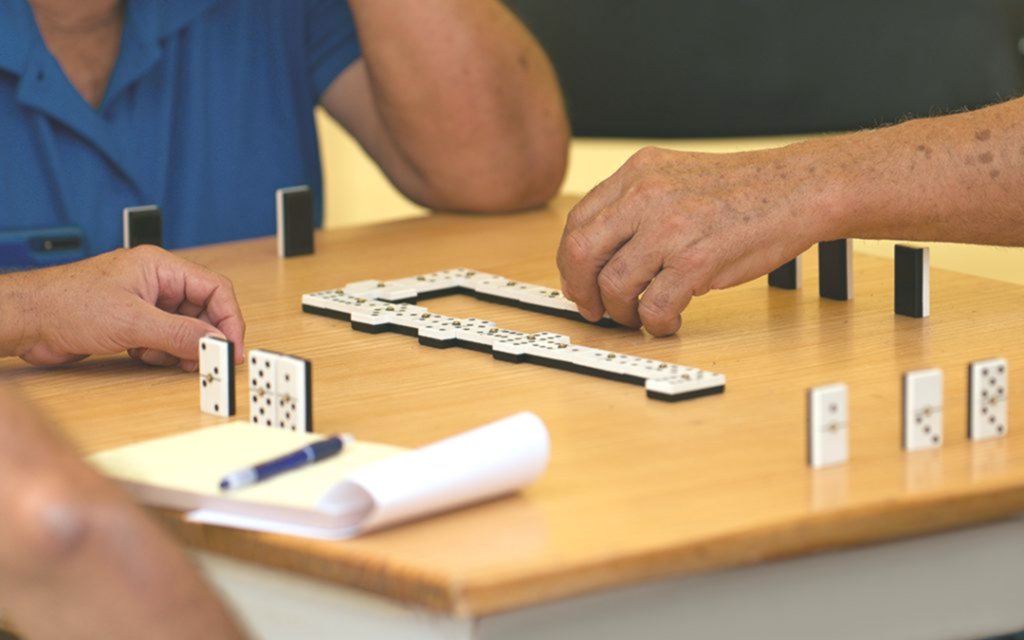
Remember where we left the keys or the bag, follow the thread of a conversation or simply remember what the movie we just watched was about … During and after finishing chemotherapy treatment , memory can be affected. This explains what experts have dubbed the c hemobrain phenomenon . Technically, it is a cognitive deficit or decreased neuropsychological functioning derived from chemotherapy treatments . Hence the term that, in Spanish, literally means ‘chemo-brain’.
Specifically, we are talking about a deterioration in memory, attention span and concentration, learning, reasoning, executive function and visuospatial skills.
Side effects of chemotherapy on the brain
First of all, it should be clarified that, when talking about chemobrain , we are referring to a set of cognitive side effects associated with treatment, not the type of cancer. It is true that, due to the nature of the treatments used, it tends to appear more frequently in hematological tumors , colon or lung . However, it is in the breast tumor that the effect of chemotherapy toxicity on the brain is best known.
In this sense, there is proven evidence ( Journal of Clinical Oncology) that there are several chemotherapy drugs that affect stem cells of the central nervous system. Although other factors such as hormonal therapy, emotional distress, aging, fatigue, sleep disturbances or menopause may also influence.
In any case, it is a mild side effect that only occurs in 15-50% of cases and, in most patients, the survival benefit of chemotherapy far outweighs the possible associated risks.

Main symptoms of chemobrain : memory and concentration problems
The effects produced by the Chemobrain phenomenon are mainly:
- Reversible memory leak.
- Difficulty finding the specific word to define a situation or object.
- Problems following a conversation smoothly.
- Difficult to focus.
- Rush to be able to carry out different tasks at the same time, fatigue, confusion (what is known as ‘mental fog’ or a certain daze).
Therefore, in case you notice any of these symptoms in a family member or in yourself, we advise you to consult your oncologist or a neurology specialist or neuropsychologist. If you also need medical advice, support or help, you can also contact our free Infocáncer service . A team of volunteers and professionals will try to help you in any way they can.
Chemobrain treatment
The studies are not conclusive. But, in general, and following the recommendations of rehabilitation and treatment, it can be improved.
For the majority of patients, symptoms disappear, or improve greatly, after the end of treatment, but sometimes they can remain long-term and last for years (much less frequent).
For this, certain recommendations can be followed to help improve the symptoms. Some of them, such as keeping the mind active, doing regular physical activity and cognitive stimulation (activities like reading, doing hobbies that force you to think or play cards), are the most recommended.
In our online workshop ‘ Cognitive stimulation: chemobrain phenomenon ‘, the AECC psycho-oncologist and neuropsychologist Olga Moreno offers some guidelines for mental gymnastics that help reduce its impact.
What can you do to reduce the effects?
On many occasions the patient may feel distressed. For this reason, it is advisable to follow some recommendations to minimize the consequences of this side effect:
- Make a daily activity planning with reminders. A trick, for example, is planning the tasks you have to do in different steps . This helps us, on the one hand, not to forget anything and, on the other hand, to learn that task as a habit.
- Exercise your brain . Crosswords, word puzzles, mazes … Any activity that allows you to stay active.
- Rest and get enough sleep .
- Do some type of physical activity.
- Take care of food . Take fruits and vegetables; since its intake is related to the preservation of cognitive abilities with aging.
- Establish and follow routines. Avoid distractions .

- Ask people to repeat the information to you and ask for help if you need it.
- Stick reminders in visible places. It is also useful to keep an agenda or have a blackboard with a post-it , where to write down the routines with the specific schedule for each one.
- Get organized . Try not to do different tasks at the same time.
- Exercise memory. Use mnemonic resources (use formulas or rhymes to help you remember).
- Manage stress.
- Decrease self-demand and take into account your level of fatigue and tiredness.
- It also helps if you do something that is enjoyable for you after routines that are difficult to perform. Improve motivation to reinforce what you’ve already done and achieve some degree of motivation.